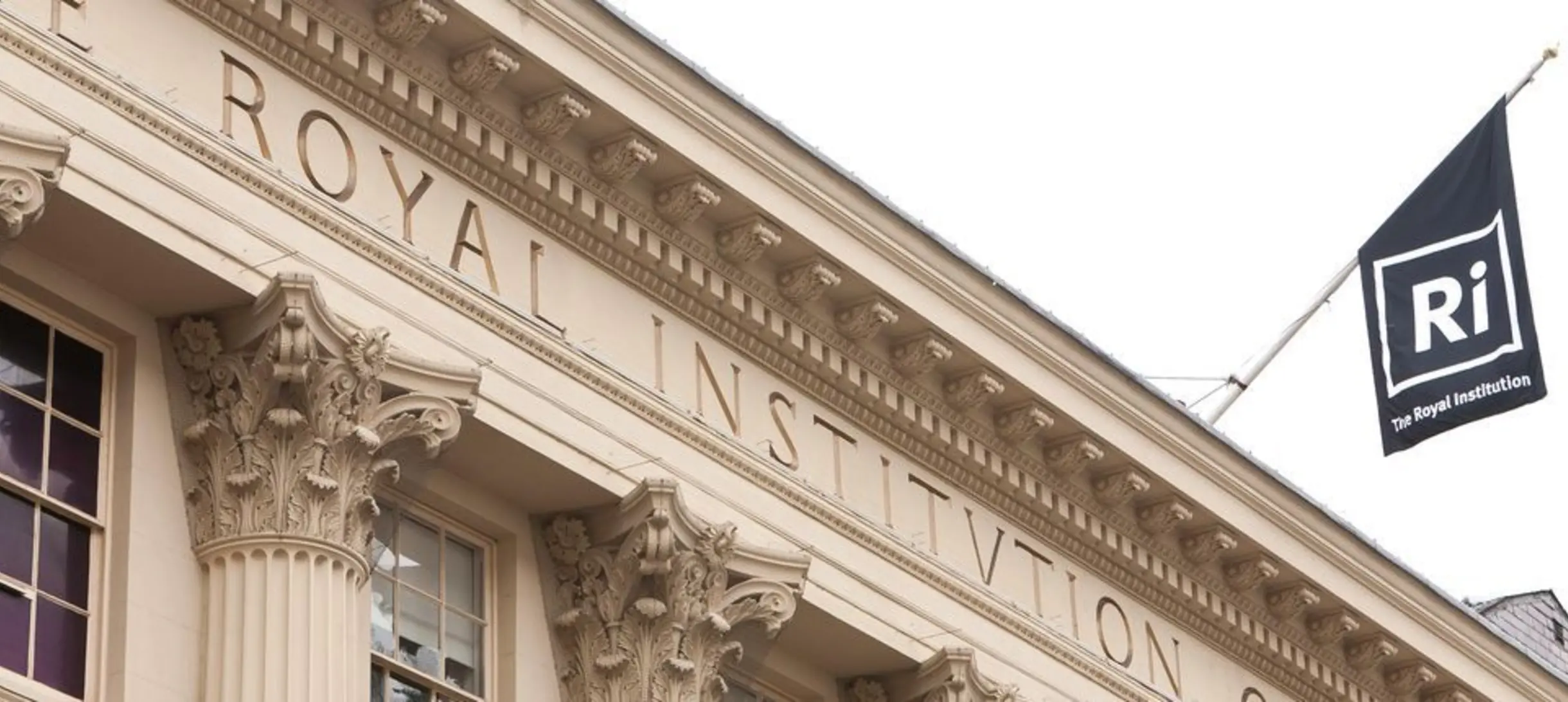The Royal Institution has appointed Dr Daniel Glaser as its Director of Science Engagement.
The move is part of the independent science engagement charity’s plans for renewal, and a renewed focus on its growth, after the necessary Covid-19 restrictions forced it to close its doors for only the second time in its 221-year history.
A neuroscientist, Daniel has worked for many years promoting public engagement with science, notably as Founding Director of Science Gallery London and Head of Engaging Science at the Wellcome Trust. He was the first ‘Scientist in Residence’ at the Institute of Contemporary Arts and the first scientist to judge the Man Booker Prize. Most recently he has been heading up Visitor Experience at the V&A and was appointed a Winston Churchill Fellow in 2019.
Lucinda Hunt, Director of the Royal Institution, said: “Encouraging as many people as possible to think more deeply about science is the Ri’s core purpose, so I am very excited that we have been able to make such an outstanding appointment.
“Daniel brings such a valuable mix of scientific knowledge, public engagement expertise and charitable networks that will all play a crucial role in our ambitious plans to reinvigorate the Ri following such a challenging time for everyone. I am delighted to welcome him to the Royal Institution.”
Daniel Glaser said: “Anyone who has combined a scientific background with a career in public engagement has a strong affection for the Ri. It has a rich history of scientific research and, running throughout, a singular focus on the importance of giving the public a voice on how science is applied in their lives.
“I couldn’t be more pleased to be joining at such an exciting time for the Ri, and to have the opportunity to add to the many achievements of its amazing science communicators.”
Having closed its doors to the public in March 2020, the Ri’s income has been decimated by the Covid-19 pandemic and despite measures to reduce costs – including furloughing staff for long periods and making the difficult decision to undertake a round of voluntary and compulsory redundancies – it ended the financial year with a £1.1m deficit.
Nevertheless, the Ri has maintained many remote activities to meet its charitable purpose, including twice-weekly livestream science talks launched during lockdown and now bringing new audiences to the Ri; strong viewing figures for the 2020 CHRISTMAS LECTURES broadcast on the BBC; and the continued growth of its YouTube channel, which is soon expected to hit the 1 million subscribers mark.
With the Ri now planning for a return to live events, an increase in its charitable education programmes and a renewed focus on its growth strategy, the Director of Science Engagement is set to play a crucial role in its success.
Dr Glaser is due to take up his post at the Ri, on a part-time basis initially, from mid-March.
